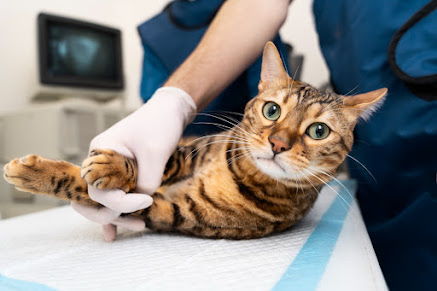How to Keep Your Rabbit with Arthritis Happy and Healthy at Home
Rabbits are adorable and lovable pets that bring joy to their owners. As they age, just like humans and other animals, they can experience health issues, including arthritis. Arthritis in rabbits can be a painful and debilitating condition, affecting their mobility and overall quality of life. As a responsible pet owner, it is essential to recognize the signs of arthritis and take proactive steps to care for your furry friend. In this article, we will explore effective ways to care for a rabbit with arthritis at home, ensuring their comfort and well-being.
Understanding Arthritis in Rabbits
Arthritis is a degenerative joint disease that involves inflammation of the joints. In rabbits, this condition typically affects their knees, hips, and spine. As arthritis progresses, it can lead to stiffness, pain, and reduced mobility. Recognizing the signs of arthritis in rabbits is crucial for early intervention and improved management.
Common signs of arthritis in rabbits include:
1.Limping and favoring one leg: A rabbit with arthritis may begin to limp or show reluctance to put weight on one leg or another.
2.Reduced activity: Arthritic rabbits may become less active, spending more time resting instead of hopping around and exploring.
3.Decreased grooming: Due to pain and stiffness, rabbits with arthritis may struggle to groom themselves properly, leading to a decline in their coat's condition.
4.Difficulty in hopping and jumping: Arthritic rabbits may find it challenging to perform their usual hopping and jumping activities.
5.Changes in posture: They might adopt a hunched or crouched posture due to joint discomfort.
6.Reluctance to be handled: Rabbits in pain may become more sensitive and unwilling to be picked up or held.
Veterinary Consultation and Diagnosis
If you suspect your rabbit has arthritis, the first step is to consult a veterinarian experienced in treating small animals, including rabbits. The vet will perform a thorough examination, including observing your rabbit's movements and mobility, and may recommend diagnostic tests like X-rays to confirm the diagnosis and assess the severity of arthritis.
Implementing an Arthritis-Friendly Environment
Once your rabbit is diagnosed with arthritis, it's crucial to create an arthritis-friendly environment at home to ensure their comfort and safety. Here are some steps you can take:
1. Proper Housing:
Make sure your rabbit's living area is spacious enough to allow easy movement. Provide soft bedding materials, like hay or shredded paper, to offer a comfortable resting spot. Consider using ramps or gentle slopes instead of high platforms to allow easy access to different levels of their enclosure.
2. Exercise and Play:
Though arthritis may limit their mobility, it's essential to encourage gentle exercise to prevent muscle atrophy and maintain joint flexibility. Create a designated play area with non-slip surfaces and place toys and treats within easy reach to encourage movement.
3. Pain Management:
Work closely with your veterinarian to develop a pain management plan tailored to your rabbit's needs. Pain relief options may include medications, joint supplements, or alternative therapies like acupuncture. Never administer any medication without professional guidance, as some medications can be harmful to rabbits.
4. Diet and Weight Management:
Maintaining a healthy weight is crucial for rabbits with arthritis. Excess weight can put additional strain on their already compromised joints. Ensure your rabbit's diet consists of high-quality hay, fresh vegetables, and a limited amount of rabbit pellets. Avoid sugary treats and high-calorie foods.
5. Regular Grooming:
Assist your rabbit with grooming, especially in hard-to-reach areas, as arthritis may make it challenging for them to groom themselves properly.
6. Warmth and Comfort:
Keep your rabbit's living area warm and draft-free. Provide additional warmth with cozy blankets or heated pads to alleviate joint stiffness.
Veterinary Follow-Ups
Regular veterinary check-ups are essential to monitor the progression of arthritis and adjust the treatment plan as needed. Your vet can also provide advice on modifying your rabbit's care based on their condition.
Conclusion
Caring for a rabbit with arthritis requires dedication and understanding. By creating an arthritis-friendly environment, managing their pain, promoting gentle exercise, and providing proper nutrition, you can significantly improve your rabbit's quality of life. Remember, a veterinarian experienced in rabbit care should guide all treatment decisions. With your love and attention, your rabbit can lead a comfortable and fulfilling life, even with arthritis. Cherish the moments you have with your furry companion, and together, you can overcome the challenges that come with this condition.






